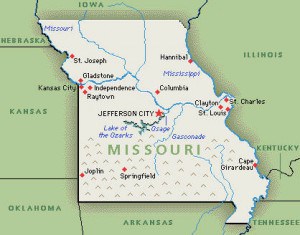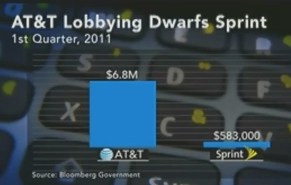 A Time Warner Cable customer in Whitefield, Maine has filed a complaint with the state’s Attorney General charging the cable company is selling customers a product it cannot deliver in parts of the state, and bills customers for it anyway.
A Time Warner Cable customer in Whitefield, Maine has filed a complaint with the state’s Attorney General charging the cable company is selling customers a product it cannot deliver in parts of the state, and bills customers for it anyway.
The broadband add-on, Road Runner Turbo, is supposed to provide customers with a faster broadband experience, but in communities up and down Maine, it apparently does not, and has not for nearly three years.
The cable company hotly disputes the accusation, made by Michael Panosian, that the company has been overbilling him $10 a month for three years.
Andrew Russell, a Time Warner Cable spokesman, told the Kennebec Journal that the company does not charge for services it cannot provide.
But the cable company’s argument lost a considerable amount of credibility when evidence emerged Time Warner has admitted the problem, and quietly agreed to reimburse Panosian $328.35 for Road Runner Turbo service all the way back to June 2008.
The admission has also become a point of interest inside the Attorney General’s Consumer Protection Division, which is engaged in discussions with Panosian and the cable company.
Despite Russell’s denials, Time Warner officials admitted there was a problem and told state officials it would be corrected sometime this month.
Panosian thinks the cable company is ripping off Maine residents pitching faster Internet it does not deliver.
Panosian said a Time Warner Cable technician told him Turbo is not available in his area and possibly others in Maine.
“From what the tech told me, it isn’t just Whitefield,” Panosian said. “I went down (to Time Warner’s Augusta office) and talked to them about it, and they’re aware of it. I said, ‘If you’re aware, why are you taking everybody’s money?’ If they don’t charge for services they don’t provide, why are they reimbursing me?”
Stop the Cap! reader Frederick, who lives in nearby Windsor and shared the story with us, says it is a classic case of Time Warner Cable overselling its service.
“The truth here is actually in the middle; Time Warner actually does deliver a Turbo service in Maine, it’s just that their network is so overcongested, nobody benefits from it during peak usage times,” Frederick reports. “They have too many customers trying to share the Internet, and Turbo cannot help resolve this problem, only upgrades can.”
Frederick reports he identified the source of the problem running a series of speed tests on his Time Warner Cable connection. He subscribes to Road Runner Turbo himself.
“The truth is revealed when you examine the upload speed of your connection,” he says. “Even when the network is busy, I can still get nearly 1Mbps upload speeds, a sure sign Turbo is on my account.”
The download speeds are another matter.
“In Windsor during peak usage times, you will easily see even a Turbo connection drop to 5Mbps in download speeds, only returning to normal after people go to bed,” he says. “That means Time Warner has oversold their network, putting too many people on the same ‘node,’ one inadequate in capacity.”
Frederick suspects the “fix” Time Warner refers to is an upgrade to DOCSIS 3 technology.
“Maine is treated like a backwater by Time Warner Cable,” Frederick charges. “What other cities got a year ago we just start to receive, so instead of performing periodic upgrades, they are just waiting for DOCSIS 3 to solve all of their problems.”
Frederick thinks customers should be compensated for the poor service, and is considering demanding a refund himself.
“I pay more than $50 a month for my broadband service with Turbo and they deliver what their ads claim only when I’m asleep or at work.”


 Subscribe
Subscribe






